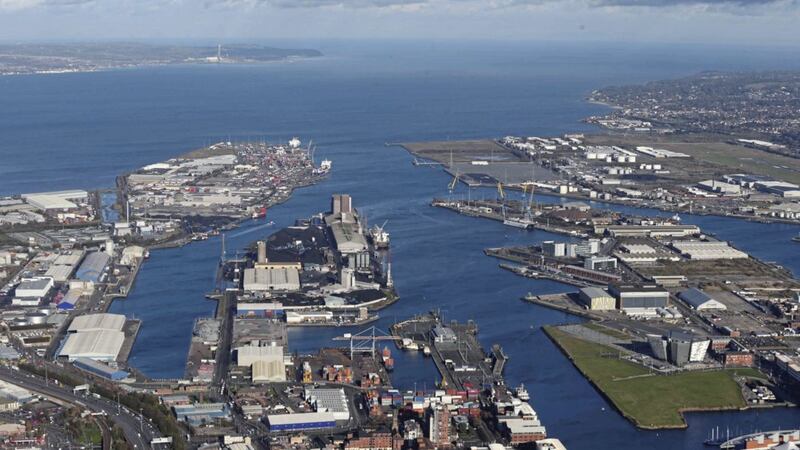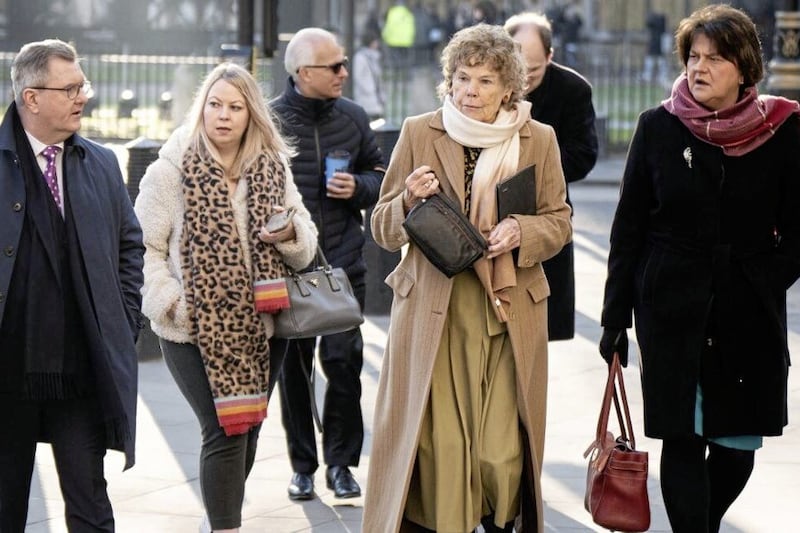THE European Union and the UK government agreed a fresh protocol to avoid a hard border, alongside a revised political declaration about their future relationship.
The deal meets the key criteria of maintaining a frictionless border, protecting the all-island economy and the Good Friday Agreement, and safeguarding the integrity of the EU single market. However, the backstop in its previous form is gone.
Under the new arrangements, Northern Ireland will remain aligned to a some single market rules but the region will continue to be part of the UK's customs territory.
The Stormont assembly will have a say in the application of the relevant EU laws in the north. Rather than a time-unlimited backstop, from 2021 the revised arrangements will operate until the assembly withdraws its consent, based on a simple majority, every four years. This removes the veto the DUP had hoped it had through the application of the petition of concern. However, if cross-community support is secured for alignment, the period of operation would extend to eight years. This particular clause of the protocol defines cross-community support as a weighted majority – 60 per cent – of MLAs present and voting, including at least 40 present of each of the nationalist and unionist designations.
If the assembly opts out, the rules will cease to apply after two years.
Northern Ireland will remain aligned to aspects of the single market rules relating to legislation on goods, sanitary rules for veterinary controls, rules on agricultural production/marketing, VAT and excise in respect of goods, and state aid rules.
Read More
- Analysis: This breakthrough won't signal any respite from the Brexit rollercoaster ride
- Have decades of free and frictionless trade been abandoned?
The necessary checks and controls will be carried out by UK government officials and will take place on goods entering Northern Ireland from the rest of the UK, including for example, Border Inspection Posts to ensure that the necessary sanitary and phyto-sanitary (SPS) controls are carried out.
The EU's customs code will apply to all goods entering Northern Ireland, avoiding customs checks and controls on the island of Ireland. A joint committee will determine the risk of the onward movement of goods, taking into account the north's specific circumstances in Northern Ireland. For goods from third countries not considered to be at this risk, the customs duties applicable in Northern Ireland will be the same as in the other parts of the UK.
The north will remain part of the UK's VAT area, with HMRC remaining responsible for applying VAT legislation, including its collection and the setting of rates. But the EU's VAT rules for goods will continue to apply in Northern Ireland and VAT exemptions and reduced rates applied in the Republic may also be applied north of the border to avoid distorting the level playing field on the island. Northern Ireland will continue to be able to operate the EU's VIES (VAT Information Exchange System) and to share data with the Republic and other EU member states.
But because the region remains part of the UK customs territory it will be able to benefit from future free trade agreements secured by the British government.
No duty will be payable on small, personal consignments and on moving personal property.








